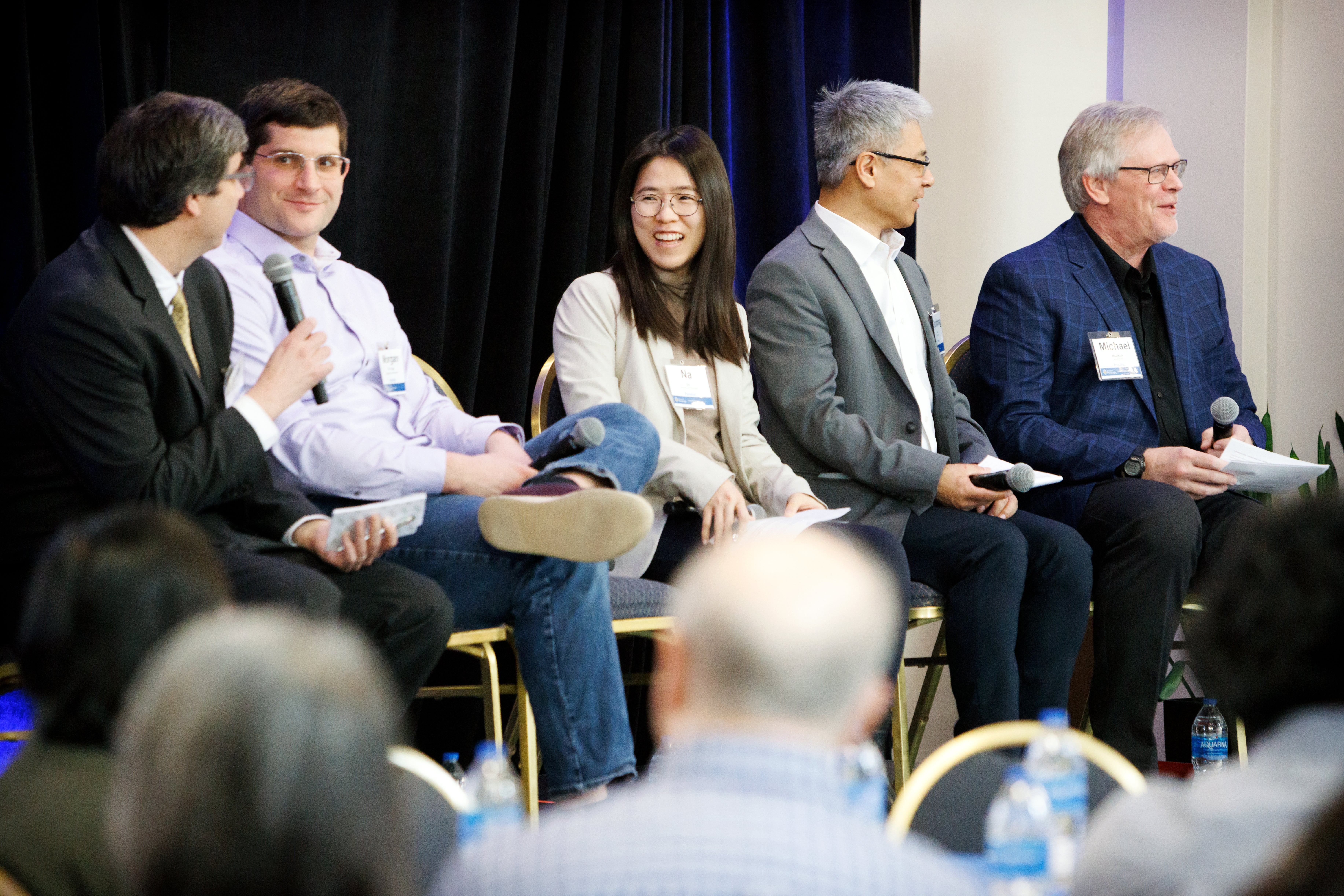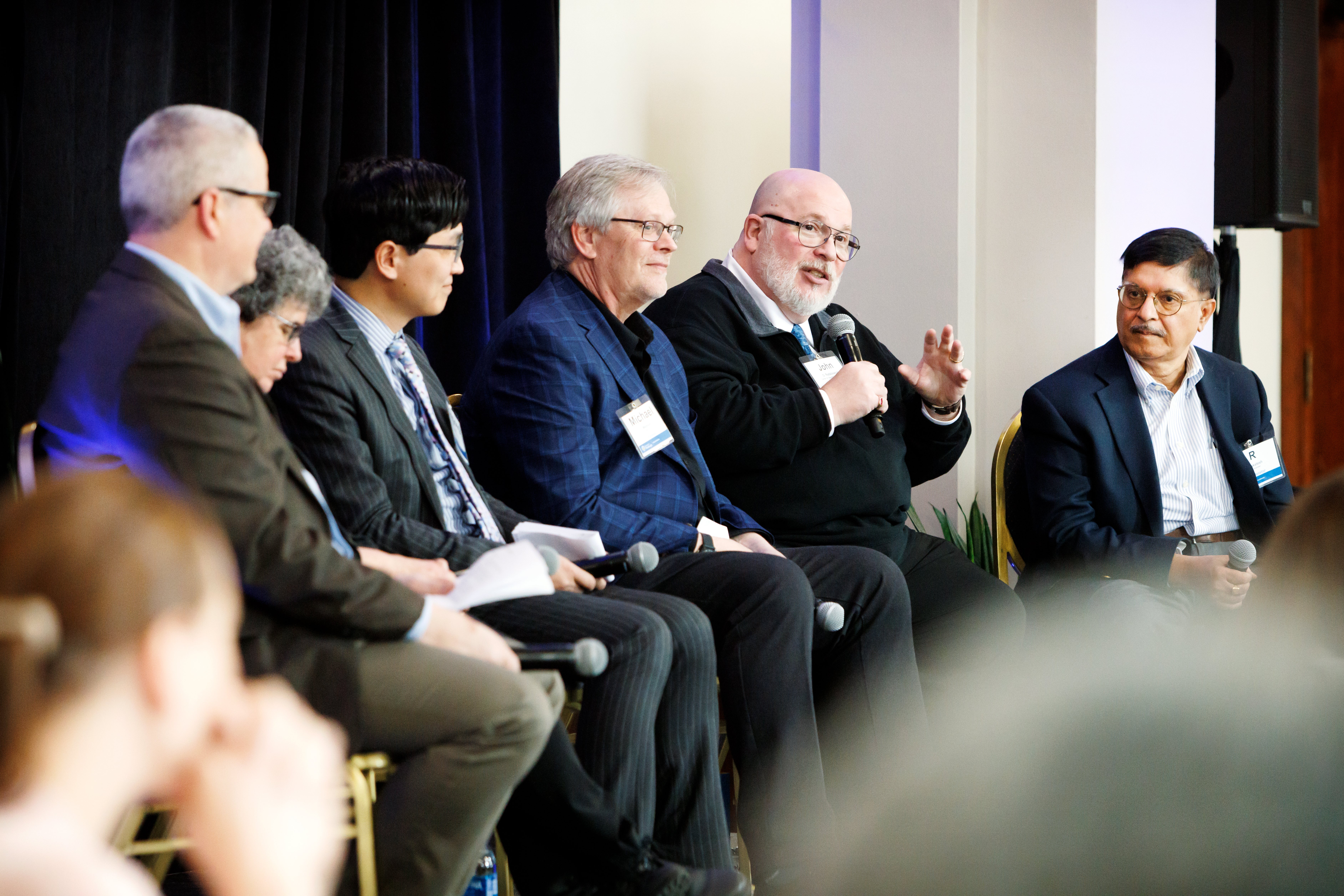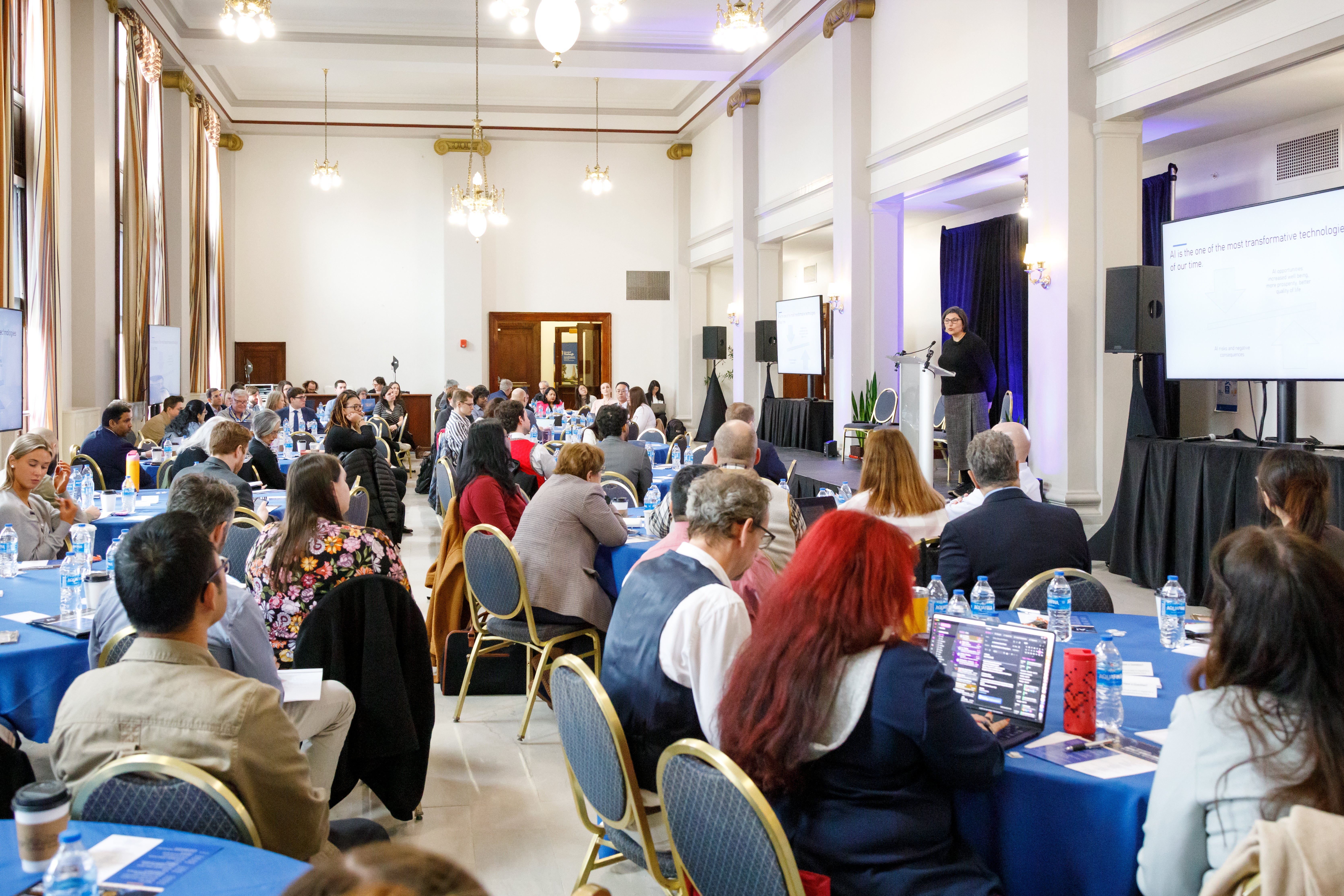April 29, 2025

The School of Computing and Information (SCI) collaborated with the University of Pittsburgh School of Business, Pitt Business Center for Branding, Pittsburgh Technology Council, and Responsible Data Science at Pitt to educate faculty, staff and members of the Pittsburgh community about integrating AI responsibly into their field.
Taking place on Feb. 11, the day consisted of panels, keynote speakers, and opportunities for networking to diffuse the message of responsible AI usage across the community. Faculty from various departments within SCI participated in the event, including Assistant Professors Na Du and Morgan Frank from the Department of Informatics and Networked Systems, as well as Diane Litman, Associate Dean for Mentoring and Development.
The first panel brought together experts in law, social computing, and political science to examine what a truly ‘human-centered approach’ to AI entails. The conversation focused on unpacking the concept of responsibility, challenging surface-level definitions of ethics, and offering real-world strategies attendees could apply within their own disciplines.
“Responsibility in AI is of critical importance, but hard to nail down into regulations because incentives can be at odds. For example, business and policy leaders should want to use AI to make the economy more productive and society more efficient and fair, but, meanwhile, workers want job stability, reliable career growth, and predictable earnings. The incentives can be in conflict without a clear resolution,” explained Frank, a panelist in the morning session of the event.
 The afternoon discussions revolved around AI in education: a pointed topic considering many of the members of the audience were Pitt professors. Keynote speaker Stefano Puntoni, Co-Director of Human-AI Research at the Wharton School of Business at University of Pennsylvania, started the conversation by exploring the newfound idea that AI is taking away entry-level jobs in certain business fields. asked
The afternoon discussions revolved around AI in education: a pointed topic considering many of the members of the audience were Pitt professors. Keynote speaker Stefano Puntoni, Co-Director of Human-AI Research at the Wharton School of Business at University of Pennsylvania, started the conversation by exploring the newfound idea that AI is taking away entry-level jobs in certain business fields. asked
Puntoni explained how AI has been integrated at the Wharton School with open arms, focusing on better preparing students for a world where AI skills are prioritized in the workforce. For example, Wharton has crafted an ‘Artificial Intelligence for Business’ major and also offer interdisciplinary courses related to AI for people in other industries.
Tinglong Dai, the Ferrari Professor of Business at Johns Hopkins University's Carey Business School, also shared his tech-forward perspective on the way AI is shifting education:
 “If degrees are to keep meaning something, institutions need to rethink what students are being asked to show—not just that they know something, but that they can take ownership in an AI-shaped world. In many ways, AI should make education more human—and more challenging. It should push students to figure out who they are. The age of AI is a moment of moral and institutional clarity for higher education.”
“If degrees are to keep meaning something, institutions need to rethink what students are being asked to show—not just that they know something, but that they can take ownership in an AI-shaped world. In many ways, AI should make education more human—and more challenging. It should push students to figure out who they are. The age of AI is a moment of moral and institutional clarity for higher education.”
These perspectives encourage educators to further explore AI by offering real-world, actionable steps for using it as a tool to enhance student learning and support positive outcomes. In the panel, Dai, along with Diane Litman, professor of computer science and Senior Scientist at the Learning Research and Development Center; Michael Madison, Professor at the University of Pittsburgh Institute for Cyber Law, Policy, and Security; and John Radzilowicz, Director of Pedagogy, Practice, and Assessment in Pitt’s Center for Teaching and Learning, spoke speculatively about the ways AI can be used in a classroom setting. For example, Radzilowicz explained that AI could help translate information for both advanced students and students who need extra help, allowing the teacher to focus on content instead of translations for each skill level. The panelists imagined a custom generative AI that builds upon a specific individual’s teaching style and material to create a virtual office hours or a ‘professor chatbot’, allowing large lectures of students access to personalized help.
“AI isn’t ‘happening to us.’ It’s being created in rooms like this,” said Puntoni in his keynote speech. He emphasized that the most powerful tool for ensuring ethical development is education: helping people understand both the risks and affordances of emerging technologies.
Through all of these speakers, members of the audience left the conference with a well-rounded idea of how AI is affecting their field, and how they can play a part in integrating it responsibly and ethically.
Read more about the conference, speakers, and upcoming events.
